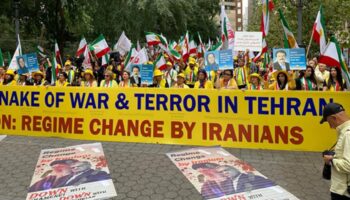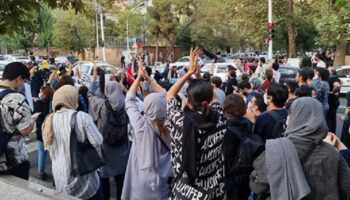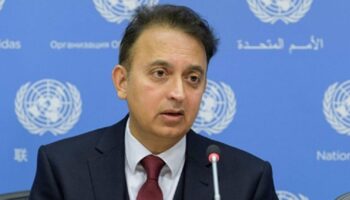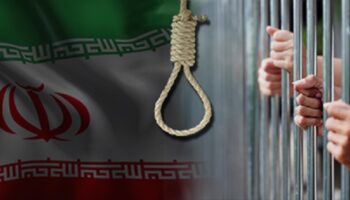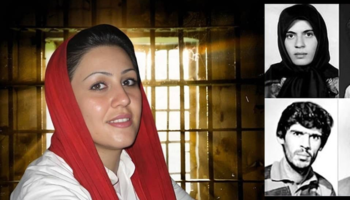![]()
The bloc faces conflicting pressures as it tries to salvage its nuclear deal while confronting hostile behavior in the region
WSJ | By Laurence Norman | Jan. 8, 2019
BRUSSELS—The European Union imposed its first sanctions against Iran since the nuclear accord was implemented three years ago, as European diplomats warned their Iranian counterparts that the bloc wouldn’t tolerate further alleged Iranian attacks and assassinations in Europe.
Tuesday’s sanctions, which add two Iranian individuals and a unit of the Iranian intelligence services to the bloc’s terror list, follow alleged plots against Iranian opposition figures in Denmark and France. The targets’ assets will be frozen and other restrictions put in place.
The move comes as the EU faces conflicting pressures over ties to Iran, with the bloc seeking to salvage the nuclear deal while confronting hostile Iranian behavior in its region and beyond. Some European officials back U.S. calls for a tougher response to Iran’s ballistic missile tests and its role in the conflicts in Syria and Yemen, but the bloc is split on that.
“Very encouraging that EU has just agreed on new targeted sanctions against Iran in response to hostile activities and plots,” Danish Prime Minister Lars Lokke Rasmussen said on Twitter. “EU stands united—such actions are unacceptable and must have consequences.”
On Tuesday, following the sanctions decision, Dutch, British, French, German, Danish and Belgian diplomats met in Tehran with Iranian officials to convey their concerns, Dutch Foreign Minister Stef Blok said.
Mr. Blok blamed Iran for the assassinations of opposition figures in the Netherlands in 2015 and 2017, the first Dutch official to publicly do so. He also confirmed for the first time that the Dutch decision to expel two Iranian diplomatslast year was connected to the cases.
Mr., Blok said the European diplomats told their Iranian counterparts that unless they tackle concerns about Iranian violence in Europe and cooperate fully with criminal probes into the cases, “further sanctions cannot be ruled out.”
Iran has denied any involvement in European attacks. Foreign Minister Javad Zarif on Tuesday accused Europe of harboring terrorist groups who have launched attacks on Iran, picking out the Netherlands, Denmark and France.
“Accusing Iran won’t absolve Europe of responsibility for harboring terrorists,” he said on Twitter.
Last summer, French authorities said Iran was behind a failed bomb plot in June on a leading opposition group in Paris. In late October, Danish authorities said they had prevented an assassination plot by Iran against a top official in an Iranian separatist organization.
Newsletter Sign-up
France has blacklisted the Iranian intelligence unit and the two individuals domestically. One of the two people, Assadollah Assadi, was accredited as a diplomat in the Iranian Embassyin Vienna. Mr. Assadi is currently under arrest in Belgium.
The two individuals the EU targeted on Tuesday were Mr. Assadi and a senior official in Iran’s intelligence ministry, Saeid Hashemi Moghadam, diplomats said.
U.S. Secretary of State Mike Pompeo has cited what he called Iranian plots in Europe as a key reason for the bloc to take a tougher approach to the country, including adopting broad new sanctions over its missile and regional actions.
EU foreign ministers this month are expected to issue a statement on the bloc’s ties with Iran and are likely to warn of their continued concerns over some Iranian activities. Britain and France have backed U.S. calls for pressure on Iran over its missile tests and Mr. Blok said in his letter that “Iran will be held to account” over “its ballistic-missile program and the country’s role in the region.”
The bloc is divided, however, on whether to apply further pressure and European officials stress that they continue to support the nuclear deal and will seek to uphold it. France, Germany and Britain are promising a new mechanism to help maintain economic ties with Iran despite the renewed U.S. sanctions that followed President Trump’s decision to withdraw from the deal in May.
Iranian officials have voiced growing frustration with Europe’s slow progress on the mechanism. Mr. Zarif on Tuesday said his government would continue working with Europeans on the plan, but is looking to improve economic ties with other countries like China, Russia and India, Iranian media reported.
Write to Laurence Norman at laurence.norman@wsj.com

